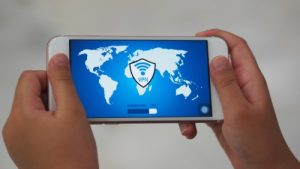As expected, more and more people are working from home now than ever. The Coronavirus pandemic has given rise to the use of VPNs in several dozen countries.
While a good chunk of the economy has been shut down in many countries, some employees continue to work from their homes despite the COVID-19 Coronavirus outbreak.
We have already seen how various quarantine measures have resulted in increased bandwidth usage. But recent trends suggest that in order to secure remote sessions while working, people are turning towards business solutions such as Virtual Private Networks.

Recently, NordVPN released some figures which revealed a 165 percent increase in the usage of VPN services and related technologies since the beginning of March. Any decent VPN service offers business plans to users who want to connect to their company networks remotely, securely, and privately.
The same holds true when employees are trying to access company data or different working applications from their homes. Usually, people make use of VPN services when they travel or any in another country/city but this time around, they are using it from their homes.
Of course, the increase in VPN usage has had multiple push factors. The major of which is the government. In fact, governments in many countries have started to push people to continue working from their homes if they are able to.
Some have made it compulsory for workers who can work from home to actually work from home even during coronavirus lockdown.
As it turns out, the Netherlands ranks top of every other country where the increase in VPN usage for business purposes has been the greatest. A huge number of online users working from home have increased VPN usage by 240 percent.
After the Netherlands, Canada and Austria have seen increases in VPN usage amounting to 206 and 208 percent respectively. Following these, significant increases in VPN usage were seen in Denmark, Belgium, and France. Reports say that all of them experienced between 190 and 180 percent increase in VPN usage.
As far as NordVPN itself is concerned, the company said its own business services grew by almost 100 percent.

The UK and the US saw 48 and 66 percent increase in the use of VPN services by remote workers. While the increases in the US and the UK are less than the ones experienced in European countries, NordVPN believes that if the government ratcheted up quarantine measures, people will start using VPN services more even here.
And while it is a good sign that people are starting to take their privacy and the security of their data more seriously in western countries, they have to make sure that they sign up for the right VPN service.
But if the consumer does not take the necessary steps to make sure that VPN themselves get all the updates and permissions they need, they can put their privacy and security at risk.
Across the ocean, NCSC (National Cyber Security Centre) in the UK recently put out a document advising employees and organizations to make use of VPN services while remote working. NCSC said that it not only helped employees stay secure from various kinds of cyberattacks but also made sure organizations kept their data safe.
VPNs come in handy especially for those remote workers who are working from their homes for the first time in their lives. Of course, along with using a VPN, consumers and organizations should nor forget other standard measures against cyberattacks.
NCSC recommends that any company’s staff should make use of strong passwords.
They should also enable 2-factor authentication on any device that has sensitive data. It is true that features such as two-factor authentication are not available on all devices.
But one can still make it harder for hackers along with other cybercriminals to hack into networks and compromise them.
ENISA (a cybersecurity agency in Europe) has come out with a set of recommendations that closely resemble that of NCSC.
NordVPN is not the only company that has reported an increase in the usage of VPN services in the past couple of months.

Atlas VPN also measured its own product’s usage and found that in places such as Italy, the VPN usage had gone up by 112%. The company analyzed traffic levels on its servers from the beginning of March to the middle and found that even though the number of customers did not increase, the actual VPN usage did increase.
Atlas also found that VPN usage in the US increased by 53 percent while it increased around 38 percent in countries such as Russia, Spain, and Iran. In Germany, VPN traffic grew by 29 percent.
While NordVPN mentioned that an increase in VPN usage was because of people working from home and organizations using VPN networks to secure their communications, AtlasVPN found that the increase was mainly due to more people spending more time in their homes. In most countries, people are unable to go to any public place.
Very few countries have allowed public gatherings. All of this has led to people making use of the internet just a bit more than usual.



